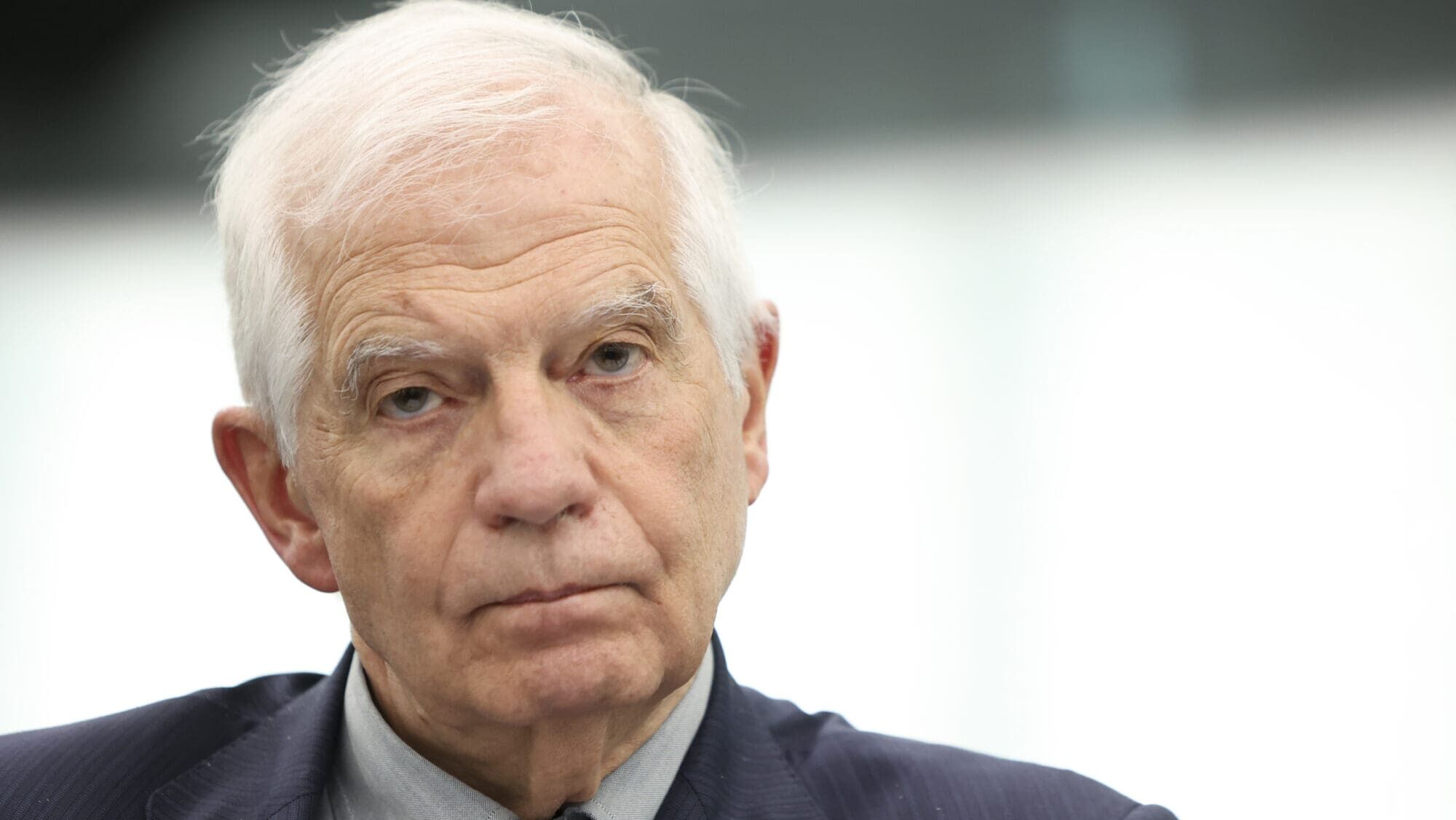
EU High Representative for Foreign Affairs Josep Borrell.
Photo: Fred Marvaux © European Union – Source: EP
Just two days after it was leaked to the media that Josep Borrell, the EU’s foreign affairs chief, was conspiring with several large member states to effectively force everyone else to boycott one of the most prestigious events organized by the EU Council’s Hungarian presidency, Borrell informed the capitals on Tuesday afternoon that his “counter-meeting” was canceled, after all.
The event in question is an informal foreign policy summit between the 27 ministers scheduled for the end of August in the Hungarian capital. It will no doubt focus in large part on Ukraine and will provide Budapest with the perfect opportunity to present its diplomatic vision toward ending the war.
But since Hungary’s pro-ceasefire stance is not an acceptable position among the Brussels elite, Borrell cooked up a plot to discredit it as much as possible. Supported by several large member states, including Germany and France, the plan was to call for a ‘formal’ foreign affairs meeting on the same date, giving member states no choice but to join those who want to boycott the Budapest summit by having to send lower-level officials instead of their foreign affairs ministers.
Borrell and his team were supposed to formally present the plan to the 27 EU ambassadors on Wednesday, July 17th. However, according to Politico, the high representative instead sent a memo to the member states on Tuesday afternoon saying that the plan was off.
The paper did not give any explanation for why Borrell changed his mind, but it is possible that he received enough negative feedback from countries who did not wish to participate in the coordinated boycott that he was simply forced to drop the plan. One of them might have been Austria, whose Chancellor Nehammer said that whatever disagreement there might be, not talking to each other is “the worst of all solutions.”
‘Informal’ policy meetings between ministers in the country holding the Council’s rotating presidency are an important tradition in the EU, and Hungary has already held a few since taking over the role at the beginning of July. The first one focusing on competitiveness was already boycotted by over two-thirds of the member states by sending lower-level officials, but seven finance ministers were present—coming from countries who do not wish to take part in childish ploys at the expense of constructive legislative work.
Likewise, even if Borrell’s “counter-meeting” is off the table for now, member states can still decide to boycott the August summit on their own accord, and it will be interesting to see which countries are open to discussing Hungary’s pro-ceasefire approach and which member states dismiss it outright.
On Monday, even the European Commission itself decided to join the countries protesting the Hungarian presidency by asking the Commissioners to similarly boycott any events organized by Budapest. According to Hungarian officials, however, it is only a cynical ploy from Ursula von der Leyen to secure the leftist support for her re-election in the European Parliament on Thursday.
Budapest, however, only wants to discuss alternative ways of thinking about the war and to use diplomacy to put an end to it instead of endless sanctions and weapons deliveries which do not seem to work.
PM Orbán has recently sent his 10-point peace plan to European Council President Charles Michel and all EU member states, containing suggestions compiled from the conclusions of his bilateral meetings with leaders on both sides of the Ukrainian war—including Zelensky, Putin, Xi, Erdogan, and Trump.
On Tuesday, Michel replied to Orbán by dismissing the document and the idea of negotiating with Moscow as a whole, reaffirming the EU’s “unwavering commitment to support Ukraine and its people for as long as it takes and as intensely as needed.” Michel also made it clear that the Council’s Hungarian presidency “has no role in representing the Union on the international stage and received no European Council mandate to engage on behalf of the Union”—something Orbán explicitly denied doing during his ‘strictly bilateral’ trips abroad.
But even though Brussels makes it seem like Hungary’s pro-peace stance to the war in Ukraine—as well as its policy urging all parties to de-escalate in order to avoid unnecessary bloodshed and possible global catastrophe—is high treason in itself, the reality is that the Brussels elite does not speak for European people.
The idea that Europe should press for ceasefire negotiations instead of indefinite financial support has been the most popular position among Europeans in most member states for at least half a year now. Recently even Kyiv has been warming up to the notion, with President Zelensky saying he’s open to inviting Moscow to the next tranche of peace negotiations that should take place in Switzerland before the end of the year.
'The boycott is childish' says @faznet about the @EU_Commission's recent absurd political move against #Hungary.https://t.co/kOpbcqXYzb pic.twitter.com/nnTqsCIOyl
— Balázs Orbán (@BalazsOrban_HU) July 17, 2024
